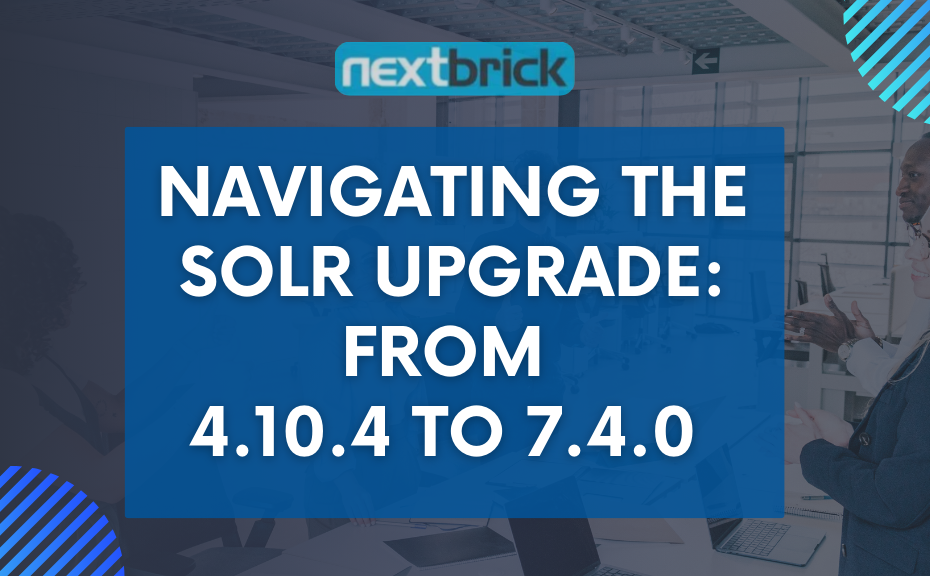In the realm of search and information retrieval, Apache Solr stands tall as a trusted and robust solution for organizations worldwide. However, as technology evolves, it’s crucial to ensure that your Solr instance keeps pace with the latest features, improvements, and security enhancements. At Nextbrick, we recently embarked on an ambitious Solr migration project, taking our client’s Solr version from 4.10.4 to 7.4.0. In this comprehensive article, we will take you on a journey through the intricacies of this migration, sharing insights and code snippets to demystify the process.
The Challenge: Our client, a leading e-commerce platform, had relied extensively on Solr for product searches, recommendations, and catalog management. While their existing Solr 4.10.4 setup had served them well, the time had come for an upgrade. They sought to leverage the latest features, improved performance, and security enhancements offered by Solr 7.4.0.
Planning and Preparation: The first step in any successful Solr migration is meticulous planning. We began by conducting a thorough assessment of the existing Solr configuration and customizations to understand potential challenges and compatibility issues. It’s crucial to ensure that any custom code or configurations from the old Solr version can be seamlessly migrated to the new one.
Code Migration: Code transition is often a critical aspect of Solr migration. To illustrate, let’s take a look at a code snippet used in the process. In Solr 4.10.4, the code for creating a SolrClient typically looked like this:
// Solr 4.10.4 code for creating a SolrClient
SolrClient solrClient = new HttpSolrClient.Builder(“http://localhost:8983/solr/core_name”).build();
However, in Solr 7.4.0, there were changes in Solr’s client libraries and API, necessitating an update in the code:
// Solr 7.4.0 code for creating a SolrClient
SolrClient solrClient = new HttpSolrClient.Builder(“http://localhost:8983/solr/core_name”).withHttpClient(HttpClients.createDefault()).build();
This is just a glimpse of the code adjustments required during the migration. The actual scope of code changes depends on the complexity of your Solr implementation and the specific customizations made over time.
Indexing and Data Migration: Data migration is often the heart of a Solr migration project. We devised a comprehensive strategy to export data from the old Solr core and import it into the new one. Here’s an example of how we achieved this using Solr’s Data Import Handler (DIH) in Solr 7.4.0:
This configuration allowed us to smoothly migrate the existing data to the new Solr core while handling incremental updates efficiently.
Testing and Optimization: Before making the new Solr instance live, thorough testing and optimization were imperative. We ran comprehensive tests to ensure that the search functionality was working flawlessly and that the indexing process met performance expectations. This phase included query optimization, relevance tuning, and load testing to ensure the system’s reliability under real-world conditions.
In conclusion, Solr migration from version 4.10.4 to 7.4.0 is a substantial undertaking that requires meticulous planning, code migration, data migration, and rigorous testing. At Nextbrick, we specialize in Solr migrations, ensuring that businesses can seamlessly transition to the latest Solr versions and leverage the full potential of this powerful search platform. If you’re considering a Solr migration, rest assured that our expert team has the knowledge and experience to guide you through the process successfully.
As technology continues to evolve, keeping your Solr instance up-to-date is vital to staying competitive and delivering an exceptional search experience to your users. Your journey to enhanced search capabilities starts here, and Nextbrick is here to navigate every step of the way. Whether it’s Solr 4.10.4 to 7.4.0 or any other migration, trust Nextbrick to make it a seamless and successful transition.
